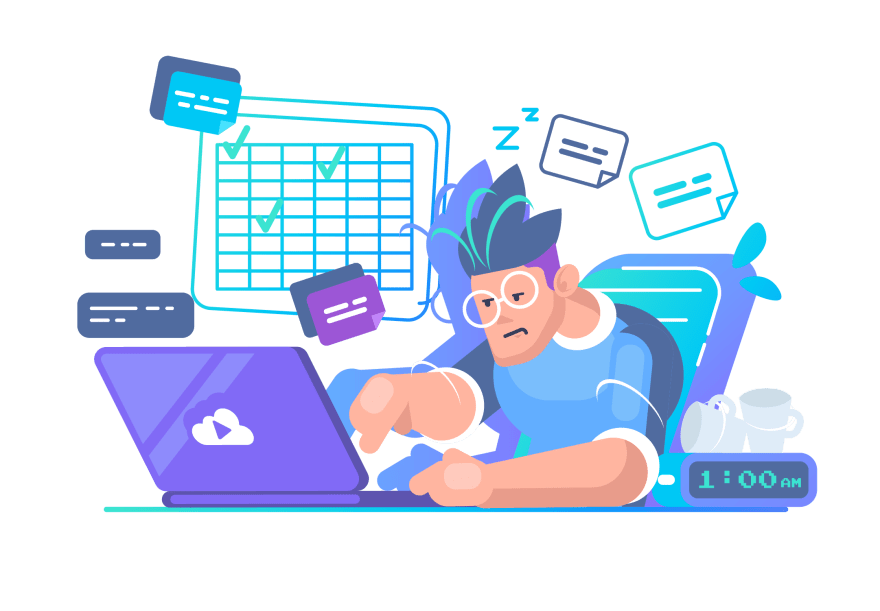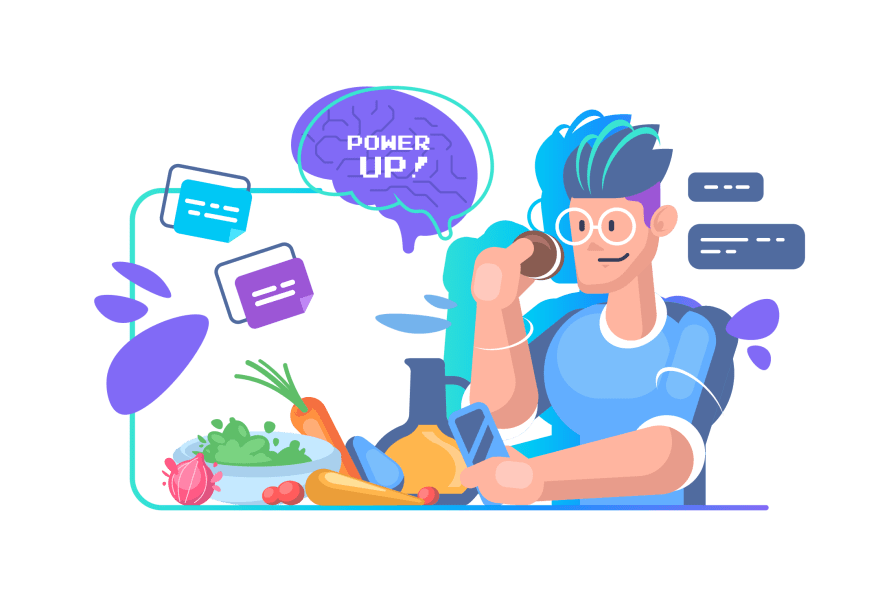Nobody thought the year 2020 would be so tough for humanity. We are all facing it, we are all working from home from different parts of the world, for some, it is not new but some people might be still trying to adjust their routine and working from home habits. Especially, developers who usually sit at the same place for long hours need to read our blog. Through this blog, we share some important and helpful points that will help developers be more productive while working from home.

Close to a million total cases, above 45,000 deaths, and around 700,000 active cases, the COVID-19 has certainly disrupted life on the planet. The markets have collapsed, companies have shut down, and all the industries have been afflicted, which has led to a significant plunge in the global economy. Precisely, economic experts forecast a global economic decline by 0.6 percent.
And, if it seems like a minuscule figure, global GDP in 2019 was around $86.6 trillion, and a 0.6% descent amounts to $5.19 trillion.
However, if you're a developer, you're probably less affected as most IT and software development companies are facilitating their work from home. But, working from home comes with its own set of challenges. You might feel disconnected from work and office, like more than half of remote workers. Plus, 22% of remote employees find it difficult to unplug after work.
The Holy Grail to working from home effectively, efficiently, and productivity is to get out of the "home zone" and establish an office-like environment.
Let's break it down as here are a few tips for developers to get it done while having fun, from home.
Follow a schedule

One of the significant challenges for employees working from home is to stick to a schedule. When you go to the office, you stick to a 6 am-wake-up, and 8 am-leave routine, but when working from home, you probably ditch your alarm clock. "Half an hour more won't hurt, will it?"
Thus, the primary step towards working from home efficiently is to have a routine and follow it strictly. You might not need to wake up at six every morning. If your job allows flexible schedules, you can wake up at seven and start at nine. But be sure to stick to it every day.
Following a schedule also includes taking appropriate breaks. Make sure you're having your lunch on time and taking coffee breaks every 2-3 hours.
Create a workspace

If it is your first time working from home, getting into the "zone" might be a hassle. If you're used to the office environment, working from your residence can be distracting. We'll come to distractions in a while, but for now, try replicating your office environment. You don't need to vacate your bedroom and replace it with floating or roll-topped desks. Pick a peaceful corner in your home and set up a computer desk. If you're used to a two-monitor setup, work with one laptop and one desktop to get a similar experience. You can also stick notes with tasks and quotes to get a boost-up.
Dress up

Since we're talking about creating an office-like environment, dressing up and working can help. Although not necessary, work from home veterans(https://www.teenvogue.com/story/why-you-should-get-dressed-up-when-working-from-home) suggest that getting dressed up and working can help you feel more connected and focused.
Besides, you don't need to suit up every morning; taking a bath and getting out of your pajamas or boxers is all you need. And ladies, a little makeup won't hurt if it helps you get going.
Set goals and deadlines

When working from home, you won't have your manager or team lead yelling every hour and reminding you of the deadlines. It might seem like peace of mind, but not setting goals and deadlines will make it difficult for you to deliver what is expected of you, and that is certainly something your company would not appreciate.
For instance, if you're to write a code that takes 3 hours to complete, set a deadline of four hours. You can take a coffee break in between or a lunch break if you want to, but be sure to conclude within your decided deadlines.
If you're unclear about the relevance of deadlines while working from home, think of what makes you finish work so fast in the office.
Avoid distractions

Another substantial concern while working from home is distractions. TV, house chores, pets, couch, bed, music, and whatnot – you can do a lot of things at home, and these things can certainly keep you from working to the fullest.
A quick fix to this hurdle is to find a place in your home that you use the least. It can be a spare bedroom, a storeroom on the roof, garage, basement, or balcony. And, make sure to stay away from the bed or couch, so you don't get tempted to take a nap.
Unplug on time

Many work-from-home employees find it difficult to end their day. Since you don't need to drive three miles to home or take a metro to commute to the other side of the city, you'll likely end up working more than usual. You might get intrigued to attend just one more mail or create one more report.
Doing so might relieve you from some work the next day, but it would affect your personal and social life – something you should not sideline while working from home. So, if you’re used to working 9-5 at the office, be sure to unplug at 6-7 when at home.
Fuel up with the right food

Ever imagined why you start off like a beast but slow down and eventually lose focus and concentration by the end of the first half of the day? If you push your brain to its physical limit and keep working through while you're tired or hungry, your productivity will drop like a rock.
It is essential to fuel your brain with the right nutrients to make it up and running all day long. Here's a quick look into what you should be eating while working from home.
Sugar:
It's the only energy-providing nutrient your brain can use as fuel, so a couple of Oreos once in a while won't hurt.
Healthy fats:
Your brain is 60% fat, and consuming healthy fats like avocado oil, fish oil, and olive oil can help nourish your mind.
Antioxidants:
Antioxidants protect your brain cells from damage, and increase your productivity in the long run. Consume foods that are rich in vitamins, zinc, selenium, copper, and manganese; fruits make a perfect fit.
Take up some courses to expand your knowledge

There is so much on the internet to do, well, other than Netflix and Amazon Prime. You can use your days productively by taking up cloud-related technology courses such as Docker, Kubernetes, Ansible for example. These are the tools that are trending and are in demand. The knowledge you gain from these tools will definitely help you and increase your chances of getting good pay and job profile. Docker course is completely free on KodeKloud.
To expand your understanding of how container orchestration tool Kubernetes works, you can take ‘Kubernetes for beginners course’. Not just that, you can, in fact, get certified in Kubernetes with two certifications, one is CKA (Certified Kubernetes Administrator) and the other CKAD (Certified Kubernetes Application Developer). We all know, this COVID-19 pandemic might end up affecting a lot of jobs and loses, so leveling up yourself and preparing for the future is a well-thought plan after all.
Wrap up

These are times of crisis, and no one knows how long it may last. You might return to the office next week, or end up working from home for three months down the line. Thus, it's crucial to plan ahead and make changes to your home workplace accordingly. Plus, keep a check of the tips discussed above the get it done with ease.







Top comments (0)